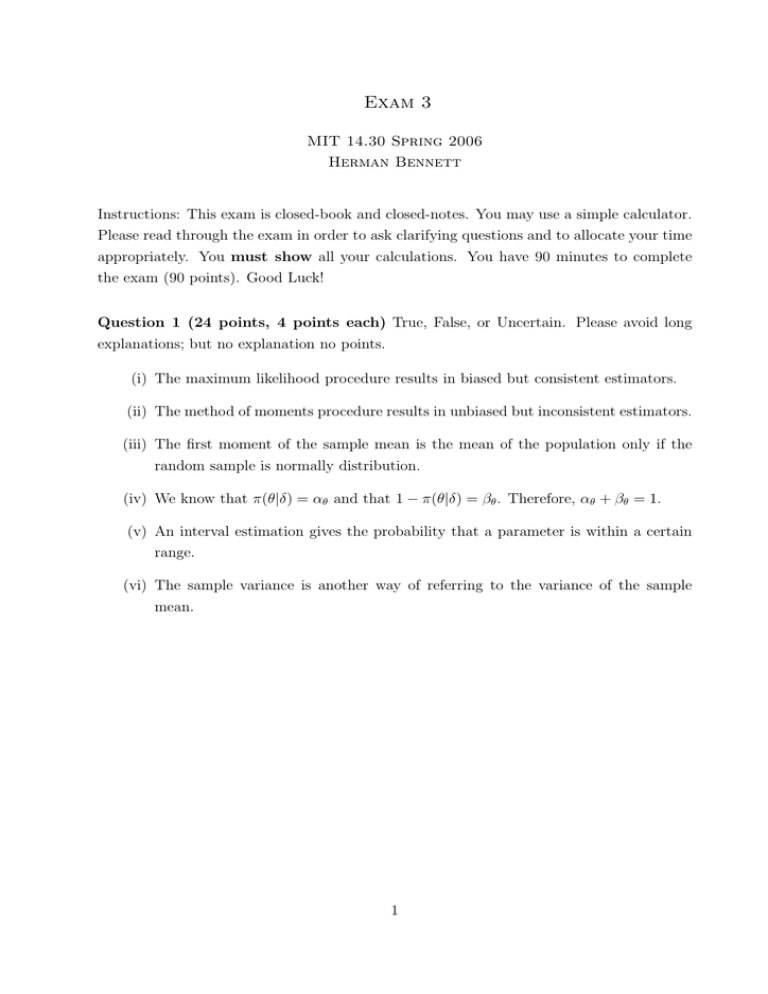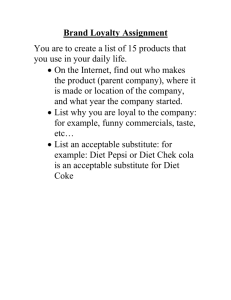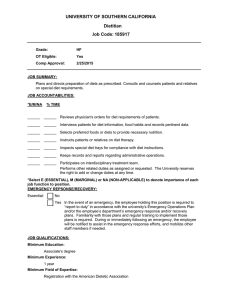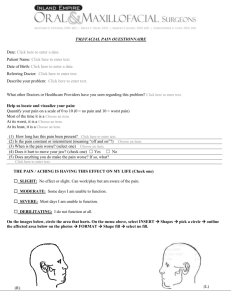Exam 3
advertisement

Exam 3 MIT 14.30 Spring 2006 Herman Bennett Instructions: This exam is closed-book and closed-notes. You may use a simple calculator. Please read through the exam in order to ask clarifying questions and to allocate your time appropriately. You must show all your calculations. You have 90 minutes to complete the exam (90 points). Good Luck! Question 1 (24 points, 4 points each) True, False, or Uncertain. Please avoid long explanations; but no explanation no points. (i) The maximum likelihood procedure results in biased but consistent estimators. (ii) The method of moments procedure results in unbiased but inconsistent estimators. (iii) The first moment of the sample mean is the mean of the population only if the random sample is normally distribution. (iv) We know that π(θ|δ) = αθ and that 1 − π(θ|δ) = βθ . Therefore, αθ + βθ = 1. (v) An interval estimation gives the probability that a parameter is within a certain range. (vi) The sample variance is another way of referring to the variance of the sample mean. 1 Herman Bennett Exam 3—MIT 14.30 Spring 06 Question 2 (26 points) Let X1 and X2 be a random sample from a population with the following pmf: � fXi (x) = 1 a if x = 0; 1− 1 a if x = 1. (i) (5 points) Compute the likelihood function L(a|x1 , x2 ) and report your results based on the following table. L(a|x1 , x2 ) x2 = 0 x2 = 1 x1 = 0 x1 = 1 (ii) (7 points) Assume that the realization of the random sample is x1 = 0 and x2 = 1. Compute � aM LE and (� a2 )M LE . (Show your steps.) (iii) (7 points) Assume that the realization of the random sample is x1 = 1 and x2 = 1. �1� . (Show your steps.) aM LE . Compute � What happens to the value of � a M LE (iv) (7 points) Find the first population moment. Compute � aM M assuming that the realization of the random sample is x1 = 0 and x2 = 1. (Show your steps.) 2 Herman Bennett Exam 3—MIT 14.30 Spring 06 Question 3 (40 points) Dr. Diet launched a new diet. He argues that it will make patients lose more than 10 lbs. over 5 months. A random sample of 25 students follow the diet for 5 months yielding an average weight loss of 4 pounds and a sample variance of 9 lbs. Assume that the distribution of each individual’s weight loss is normally distributed with unknown mean and variance. (i) (6 points) Construct a symmetric 95% confidence interval for the mean of the dis­ tribution of each individual’s weight loss (µ). (ii) (8 points) Construct a hypothesis test and test Dr. Diet’s claim. Use a One-sided Test with the null hypothesis that the mean of the population distribution is at most 10 lbs. and with the alternative hypothesis that the mean is higher than 10 lbs. Make your decision rule such that the probability of type I error is 5% if µ = 9.7. What do you conclude? (iii) (5 points) Is the size of this last test less than 5%, between 5% and 10%, or greater than 10%? (Show your steps.) (iv) (8 points) Given your results, you are curious if the diet of Dr. Diet is of any help. Construct a 2-Sided Test of size 1% and test the hypothesis that the diet of Dr. Diet does not have any effect on weight. What do you conclude? Is the p-value of this last test less than 1%, between 1% and 5%, or greater than 5%? (Show your steps.) (v) (8 points) Dr. BetterDiet is the archirival of Dr. Diet. He launched a competing Diet, which he says is better than Dr. Diet’s (cause people to lose more weight). To prove his claim, he replicated Dr. Diet’s experiment with 50 students, but with his diet instead of Dr. Diet’s. He claims that his diet is better because the average weight loss was 5 pounds (sample variance of 9 lbs). Formally test Dr. BetterDiet’s claim with a 2-sided test of size 5%. For this test, assume that the population in Dr. BetterDiet’s is also normally distributed, that the population variance in both cases is known and equal to 9, and that both samples are independent. What do you conclude? (vi) (5 points) How much higher does the average loss of weight in Dr. BetterDiet’s experiment should have been in order to reject the null hypothesis of identical effects between diets? 3



